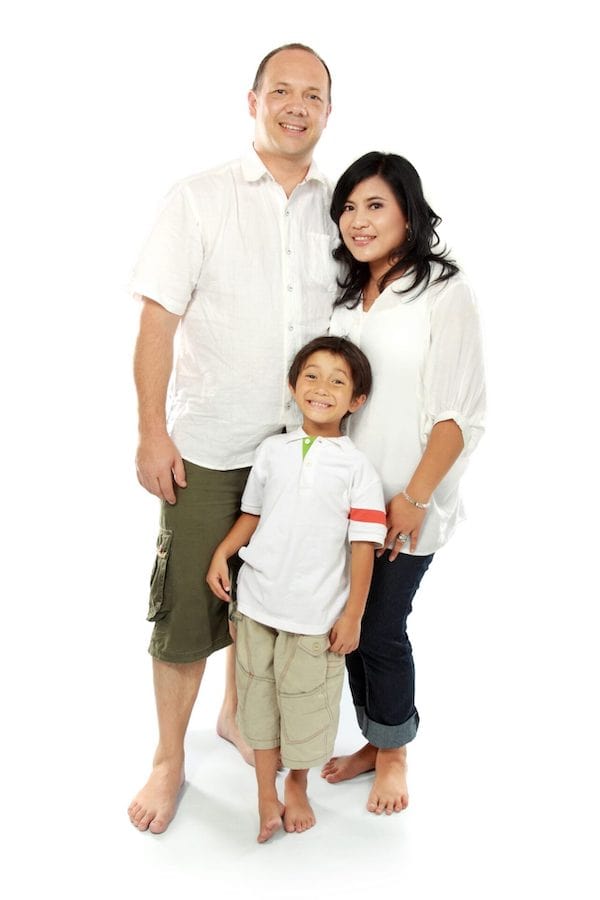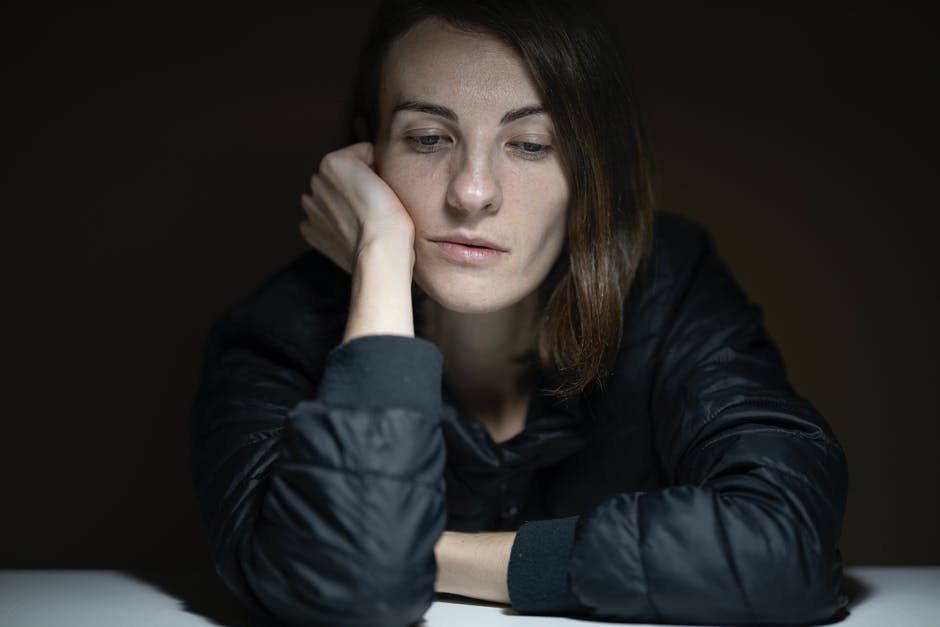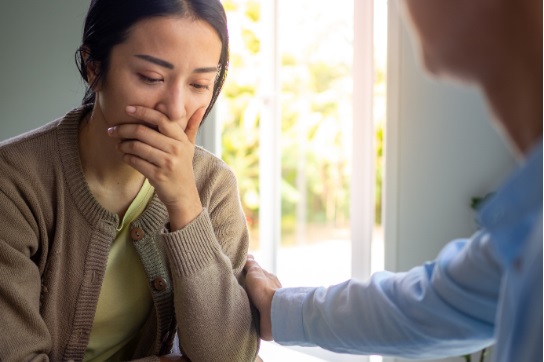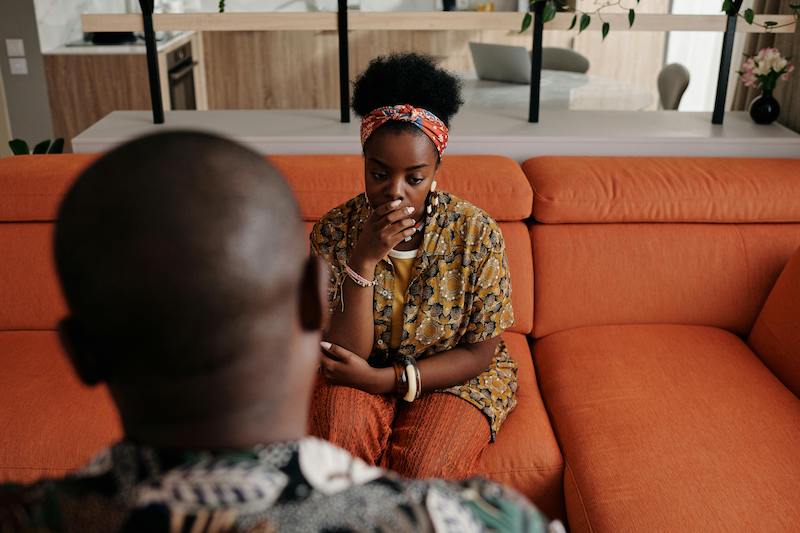Depression Therapy
Do You Feel Lonely And Disconnected From Others?
Have you been struggling with unrelenting low moods?
Are you relying on unhealthy coping mechanisms, like using substances, to numb your negative feelings?
Do you distance yourself from family and friends when they ask what’s wrong, even if you’re desperate for connection?
If you’re suffering from depression, you might feel trapped by your negative thoughts. You may be dealing with low self-esteem, and you may find it hard to believe your circumstances could improve. This sense of hopelessness may discourage you from trying to overcome the problem.

Depression Can Negatively Affect Every Area Of Your Life
You may have trouble concentrating at work or in school, causing your performance to suffer. In turn, this can lead to feelings of guilt and shame as you worry that you’re letting other people down. It can feel like your symptoms are creating a barrier between yourself and others, and you may feel like no one quite understands what you’re going through.
Depression can even make you wonder whether you might be physically ill. You might spend most of your time at home sleeping, barely working up the energy to get out of bed, or you may toss and turn throughout the night.
Maybe you have tried to talk to your loved ones about your feelings, but you either end up holding back entirely or downplaying the severity of your symptoms because you can’t be completely honest. At Relucent Psychology Group, you can share your authentic emotions with a therapist, delve into the specific roots of your symptoms of depression, learn helpful stress management techniques, and potentially gain a new outlook on life.
Do You Have Questions About Depression Therapy? Contact Us
Relevant Blog Posts

Is Depression a Disability: A Complete Guide
You or your loved one may be experiencing a negatively impacted life due to depression. If this is the case, it is time for you to get help. Here's a guide on depression to help you understand what depression is and how it may be considered a disability. Read on to...

Understanding Grief and Loss
by Russell Floyd, Psy.D. Throughout our lives, it is inevitable we will experience loss in some way that will lead to us going through a grieving process. The common misconception is that grief is only experienced in the face of extreme, life-altering losses, i.e.,...

Depression vs. Sadness: The Differences Explained
It can be challenging to understand the differences between depression vs. sadness. Find out more about the similarities and differences below. Depression is one of the most common mental health issues in the world. According to data from the World Health...
Depression Can Feel Isolating, Yet It’s Fairly Common
Feeling sad or “blue” is a normal aspect of the human condition, but sometimes, these feelings persist for months or years without relief. Although prolonged sadness is one symptom of depression, this condition can also drain your motivation, making it hard to get out of bed and leave you feeling hopeless.
People with depression often withdraw from relationships out of fear that they’ll be viewed as weak. But in reality, this condition is surprisingly widespread, and countless people suffer from depression in silence. Depression isn’t an indication of weakness, nor is it the “fault” of an individual. Rather, it can be caused by a variety of factors, which are often outside of your control.
Environmental, Genetic, And Lifestyle Factors Can Contribute To Depression
The causes of depression are just as complex as the disorder itself. For example, if depression runs in your family, you may be genetically predisposed to your condition. Additionally, challenging life transitions like divorce, the birth of a child, losing a job, or even developing a chronic health condition can trigger symptoms of depression. An individual who feels unfulfilled in several areas of their life without a clear path to change can also become depressed, even if everything seems “fine” on the outside.
Many people with depression hesitate to seek therapy for a variety of reasons. The stigma surrounding therapy can discourage them from reaching out for help. Furthermore, the lack of energy that often accompanies depression can make it difficult to work up the motivation to attend therapy. But by pursuing counseling, you can identify factors that might be influencing your symptoms of depression, recognize unhelpful lifestyle patterns, develop healthier coping skills for everyday challenges, and quiet your inner critic by cultivating deep self-compassion.
In Therapy, You Can Make Lasting Changes And Find Hope For The Future
At Relucent Psychology Group, we guide you in connecting with your inner world to understand how and why depression is showing up in your life and causing distress. In therapy, you’ll explore how your past experiences and relationships may have led to deep-rooted, negative feelings about yourself and the world. Overall, we will support you in claiming agency within your own life so that you can create a brighter future.
What To Expect In Depression Therapy Sessions
Your therapist will help you examine the potential behaviors, thought patterns, or life circumstances that may be contributing to your depression. Once we’ve pinpointed a few possible factors that are likely related to your symptoms, we can delve into how your thoughts affect your behavior and emotions, focusing on emotional regulation strategies. Your therapist will also help you accept your thoughts and feelings without judgment.
Treatment Approaches For Depression Therapy
In our practice, we integrate multiple approaches to depression therapy to customize your unique treatment plan. Through Cognitive Behavioral Therapy (CBT) for depression, you’ll identify how your thoughts influence your actions and feelings, learning how to transform this cycle by rewriting the narratives around your core beliefs. With Internal Family Systems (IFS), you’ll discover how all of your inner parts, including your inner critic, manifest in your symptoms. This approach will help you integrate these parts, even your emotional wounds, and assume a leadership role in your life.
Your therapist can also draw techniques from Dialectical Behavioral Therapy (DBT) for depression treatment, which will enable you to simultaneously accept your personal circumstances while taking gradual steps to change your situation for the better in different areas, from the workplace to your social life. We’ll also help you polish your social skills, feel more at ease while interacting with others, and support you in reconnecting with loved ones whom you may have distanced yourself from.
Additionally, we’ll equip you with tools and routines to help boost your mood outside of sessions. Your therapist will assist you in implementing healthy, consistent daily routines, reconnecting with your loved ones to strengthen your support system, committing to regular exercise, practicing mindfulness to stay present, and engaging in forms of self-expression, like writing in a journal.
When you connect with the right counselor to treat your depression, you’ll feel truly heard and understood. You’ll uncover new insights about yourself and gain strategies that enable you to navigate life’s challenges without pushing your own needs and desires to the back burner.
But You May Still Have Questions About Depression Therapy…
I’ve felt this way for so long –can therapy actually help treat my depression?
The negative thoughts and sense of hopelessness that often characterize depression can make it difficult to believe that healing is possible. But in therapy, you can explore the roots of these thoughts, express yourself honestly, gradually shift your core beliefs, and implement realistic lifestyle changes that support your emotional and physical wellbeing. If you’ve been trying to overcome depression on your own with little success, you might be surprised by how much progress you can make with the support of a compassionate therapist.
Will I need to take medication to start feeling better?
We understand that many people are hesitant to take medication for depression due to fears of side effects or dependency. Therefore, we aim to address depressive symptoms through talk therapy first before evaluating whether or not a client might be a good candidate for medication. Medication in combination with talk therapy can be very beneficial for some people suffering from depression, so if you’re interested in trying medication, we’ll work closely with a prescribing professional to assess the proper type and dosage for you and monitor your outcomes.
Could my child or teen be suffering from depression?
Depression can affect people of any age, including children and teens. Young people are vulnerable to the same factors that can cause depression in adults, including genetic risks, environmental circumstances, and difficult life transitions. They can also benefit from therapy. Adults should be aware that signs of depression in young people can look different. They’re more likely to display symptoms like irritability, “acting out,” behavioral regression, and appetite changes.
With Support, You Have The Power To Change Your Circumstances
If you’re ready to uncover the causes of your depression, learn how to better manage complicated emotions, and improve your overall quality of life, it may be time to connect with a therapist. We invite you to call or text us today at 408-680-4114 to set up a free consultation or book your first session.












